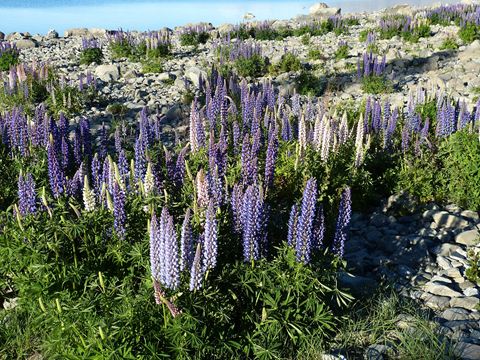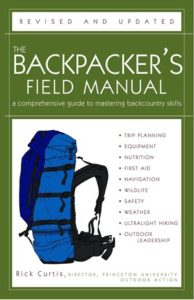“Students Experience Self-Esteem Improvement During Mountaineering,” by Saeid Bahaeloo-Horeh and Shervin Assari (WEM volume 19, pages 181-185, 2008), was a study of 54 students from different universities in the city of Tehran, Iran who participated in a mountaineering program. Using a self-esteem scale, the participants were measured before and after the mountaineering activity. By the measures used, it was discovered that their self-esteem was improved. Interestingly, the self-esteem correlated with the degree of bodily pain reported, and was also correlated with an improvement in mental health and depression. It did not correlate with age, gender, marital status, prior personal or family history of mountaineering, prior history of mountain sickness, or reaching the summit (of mount Damavind).
The authors note the historical belief that sports activities build self esteem. However, this has never before been quantified for outdoor or wilderness activities. Their findings make sense, from the perspective that positive achievement should lead to an improvement in self-esteem and how one views oneself.
It is intriguing to note that there may be a lessening of depression, or tendencies towards depression. It is not possible from this study to ascertain how long this effect might persist. Many outdoor educators have observed that persons who suffer from clinical depression often do not find a significant improvement in mood by participating in outdoor recreation, and may even be disappointed by the experience when their depression is not lessened by their activities. The logical way to think about that observation against the findings of this study is that there are many variables to a situation, such as the cause and severity of depression (or any mental illness), the specific effects of an activity, the physiology and emotional state of individuals, and so forth. However, it is encouraging to note that a sense of accomplishment from a relatively brief mountaineering program can have such a laudatory effect on how a person views him or herself. Furthermore, without a positive correlation related to reaching the summit, it is fair to say that it is the activity, or “the journey,” that is important.
Saeid Bahaeloo-Horeh, MD; Shervin Assari, MD
Introduction.—Despite ample evidence in the literature of the correlation between sports participation in general and self-esteem, there is a dearth of information regarding the probable impact of specific sporting activities on self-concept. We, therefore, sought to assess the effect of mountaineering on self-esteem and its correlates in university students.
Methods.—This longitudinal study recruited 54 students (male 26%, female 74%) from different universities in the capital city of Iran, Tehran. The students participated in a mountaineering program in Mt. Damavand in July 2006. The Rosenberg Self-Esteem Scale (RSES), SF-36, and Hospital Anxiety and Depression Scale (HADS) were completed by all the participants before and after this activity. Their demographic data and mountaineering experience were also collected.
Results.—Mean RSES after climbing was significantly higher than before the experience (24.78 ± 2.4 vs. 23.67 ± 3.3; P = .002). Self-esteem was correlated with bodily pain, and its improvement was correlated with mental health and depression (P < .05). Self-esteem and its improvement were not significantly correlated with age, sex, marital status, prior personal and family history of mountaineering, past history of mountain sickness, and reaching the summit (P > .05).
Conclusion.—This study showed that participation in a single mountaineering program improved students’ sense of self-esteem. We suggest that taking up this activity might have benefits for students with depression.


